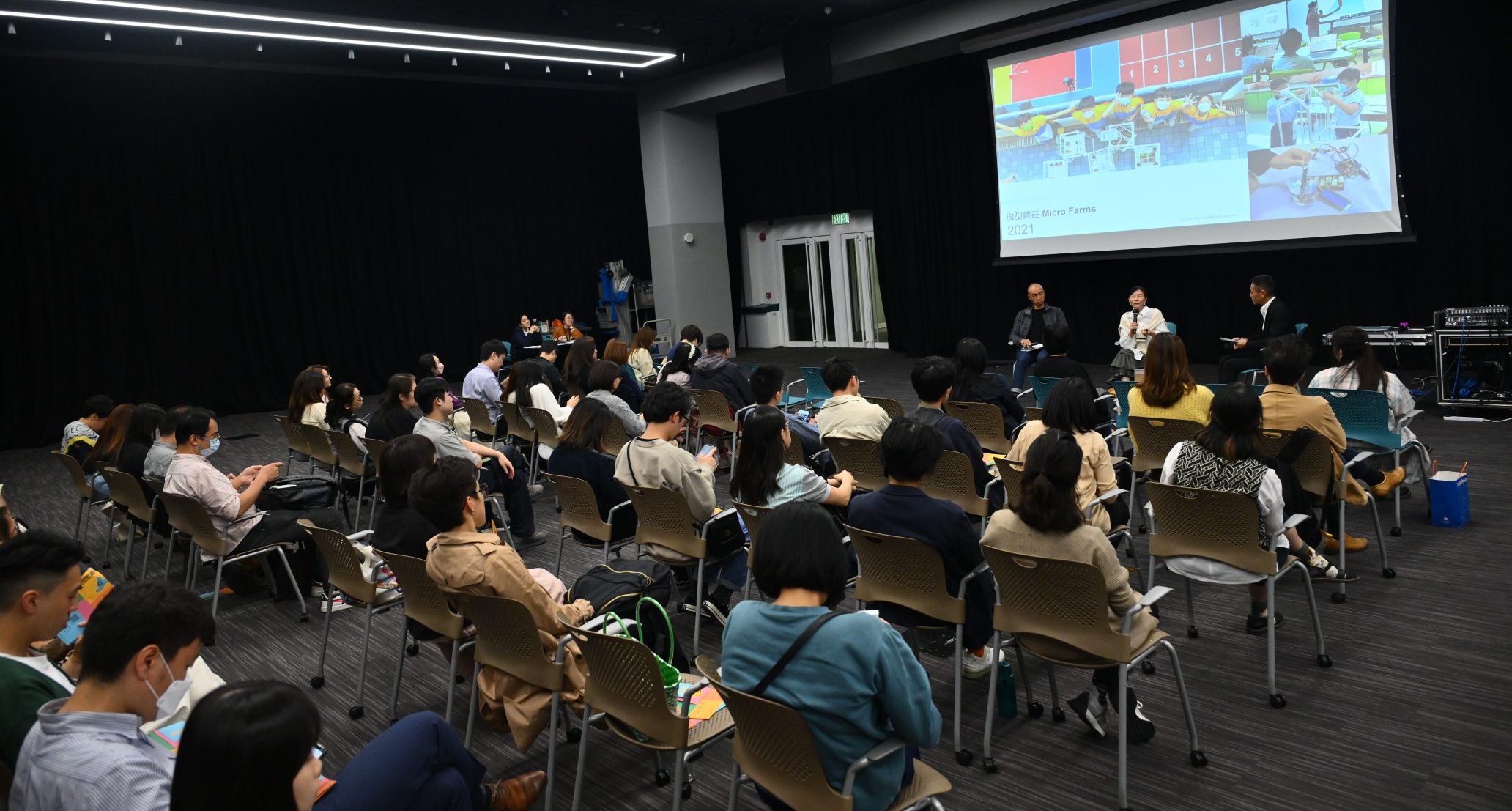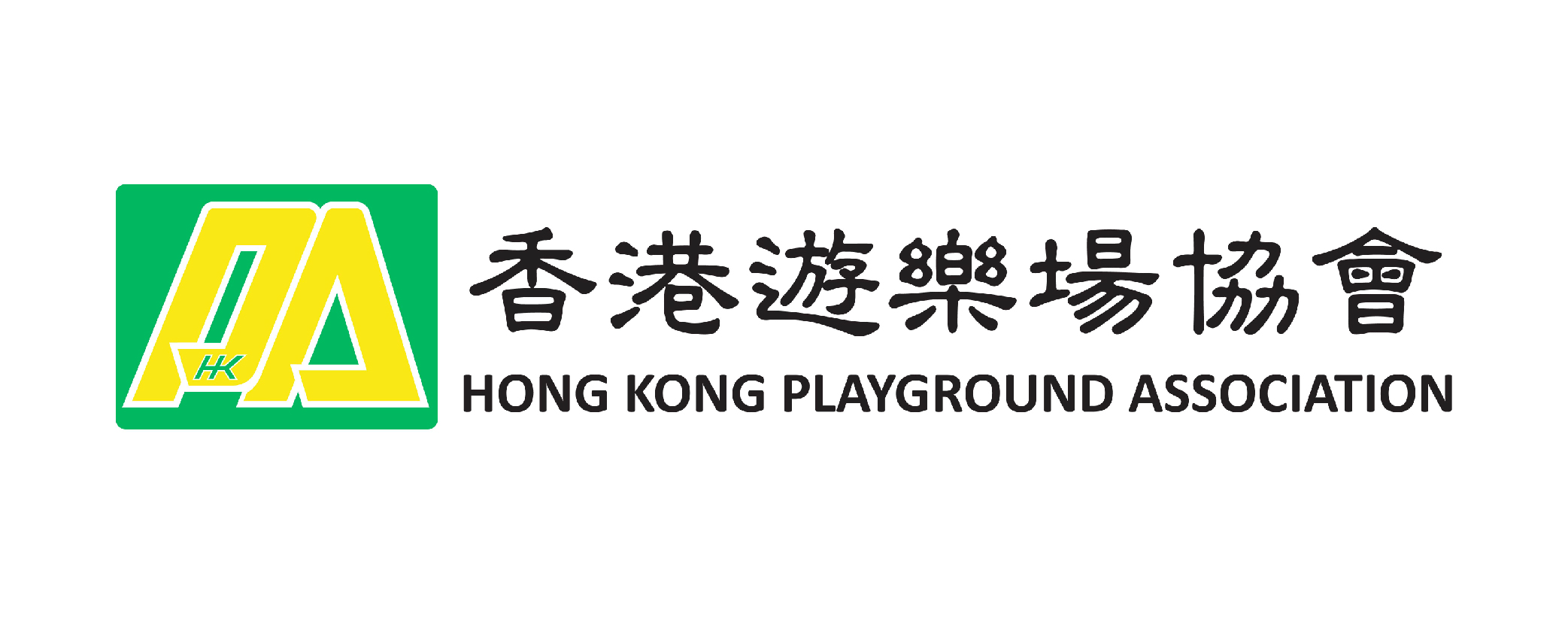
From March to May 2024, PMQ Seed partnered with the Design Thinking Team from the Hong Kong Design Institute (HKDI), architect, artist, theatre education consultant, teacher from primary school and social workers who are professionals equipped with ample teaching experience, to host a series of Train the Trainer Workshops. The target audience of the workshops are mainly cross-disciplinary creative professionals participating in PMQ Seed creative education programmes this year and school, and secondary for local school teachers and creative professionals who are interested in creative education. The workshops provided knowledge on applying design thinking in cross-disciplinary sectors, handling children’s emotional and behavioral needs and students with Special Educational Needs, participants were encouraged to apply the knowledge into their programmes and lessons. The HKDI team will also continue to offer professional advice for programmes of PMQ Seed throughout the year.
As a strategy to solve the problem, design thinking requires young learners to utilize their creativity and be user-centered to consider the solution at multiple angles. To help our next generation equip with this mindset, how can educators from different industries collaborate and work together with their own strengths?
For this sharing session, we were honoured to have lecturer Edwin Wong from the Hong Kong Design Institute, school teacher of Ma On Shan Methodist Primary School Miss Chan Ka Ki, as well as PMQ Seed’s teaching teams: theatre education consultant Ms Sim Fong Zoe Lai, architect Mr Kevin Siu, artist Ms Chung Wai Ian, who shared with us their previous experience bringing design thinking practices into primary schools and discussed the practical possibilities of cross-disciplinary collaboration.
Edwin first introduced the concepts of design thinking and indicated the importance of practicing design thinking at schools, pointing out that cross-disciplinary collaboration is crucial in the practical process. Ian and Miss Chan then shared their teaching experiences from the perspectives of artist and primary school teacher, further proved the benefits of cross-disciplinary collaboration. After joining the School Outreach programme last year, Miss Chan tried to practice design thinking in primary school. She invited beekeepers to school to share about solitary bees and organized an event for students to design a bee hotel, encouraging students to be empathetic and think from the perspective of solitary bees after learning from beekeepers about their living habits and needs, which eventually inspired them to develop creation. Positive feedback was received in the sharing session.
In the second part of the sharing session, Kevin and Zoe shared their experiences and thoughts on designing and launching the School Outreach programme in the past few years. They both talked about the ways to help students from different levels be empathetic, explore their surroundings, express their opinions in groups using design thinking, and practically visualize their ideas step by step with the learning-by-doing strategy.
Through the sharing of past experience and practice, teachers, experts in the creative industries who are interested in creative education and the public can learn more about design thinking and solving problems in creative ways through a people-centered perspective.
Presenters:
Ms Chan Ka Ki (Teacher of Ma On Shan Methodist Primary School)
Ms Chung Wai Ian (Artist, co-founder of MUDWORK)
Mr Edwin Wong (Lecturer, Hong Kong Design Institute)
Mr Kevin Siu (Architect, co-founder of AaaM Architects)
Ms Sim Fong Zoe Lai (Theatre education consultant, co-founder of Littleurbanmountain Design)
In order to provide teaching teams and school teachers with thorough understanding of applying design thinking, PMQ Seed invited the Design Thinking Team from the Hong Kong Design Institute (HKDI) to deliver two workshops introducing design thinking (Basic and Advance). For basic level workshop, participants were able to learn the methodology of user research and engage in user experience through role-play activity. The workshop then followed by learning divergent and convergent thinking which allowed participants to draft a design solution which satisfied the needs of users and project criteria.
For advance level workshop, experiential learning, outcome-based learning and teaching, intended learning outcome and QF level framework for teaching strategies were covered in teaching participants to gain deeper understanding of applying design thinking. Also, the advance workshop this year invited teaching teams to share their teaching proposal and course framework, different teaching teams and school teachers joining our prgorammes this year had the opportunity to exchange ideas and advice, so as to help trainers meet the learning outcome comprehensively.

Hong Kong Design Institute - Design Thinking Team
The Hong Kong Design Institute’s Design Thinking Team was founded in 2017, and is focused on developing design thinking partnership and training programmes. The team consists of higher education professionals with extensive experience in the field of design, who are passionate about facilitating the education and application of design thinking in tertiary, secondary, and primary schools, as well as the design industry.
This year, PMQ Seed starts to deliver creative education programme to different communities. This sharing session invited registered social workers to share background and development of children from different communities. Besides, by sharing their perception towards our theme this year, it is useful for teaching teams to adjust programmes’ contents. Due to various learning traits of children, social workers also provided solutions on responding to children’s emotional or behavioral problems.
How should the teachers handle the situation when children are not paying attention, being passive or uncooperative? Social worker Lokey Wong from Jockey Club Integrated Service Centre of Aberdeen Kai-fong Welfare Association introduced the teaching teams different techniques to get along with children, including methods of handling the emotions of children, utilizing the timing of waiting and actions to ease negative behaviours, helping them to keep the class in order. Besides, Lokey also shared the learning characteristics and needs of children from the Southern District, equipping the corresponding teaching team with a more comprehensive preparation.
Aiming to provide a further understanding of the learning characteristics and needs of students for the teaching teams, PMQ Seed invited social worker Lui Cheuk Hang from Choi Tak Integrated Service Centre for Children & Youth of the Hong Kong Playground Association to share about the learning condition and level of environmental awareness in the Choi Tak Estate, helping the teaching teams equip themselves with a basic understanding of the community before launching the programme and designing more suitable learning objectives. In addition, precious practical experience was provided for the teaching teams, For example, they were given the flexibility to modify regulations during games and different methods to tackle the behavioural problems of children, which offered great benefits to the teaching team.
Workshop also invited founder of SEN community platform who was also a social worker in secondary school, to analyze the features and learning needs of students with SEN in addition to providing solutions in an emergency during lessons.
PMQ Seed invited an experienced registered social worker, founder and CEO of Snaildy Education Limited Patrick Lau, to share the techniques and methods to get along with SEN students with our teaching teams joining the programme this year. Patrick’s sharing allowed the teaching teams to identify students with different needs and provided corresponding teaching methods such as setting up rules before activity or guiding students with step-by-step guidance, so as to improve their teaching effectiveness.



• Aberdeen Kai-fong Welfare Association
Founded in 1950, Aberdeen Kai-fong Welfare Association Limited established the Aberdeen Kai-fong Welfare Association Social Service (formerly named “Aberdeen Kai-fong Welfare Association Social Service Centre”) in 1976, upholding the mission, “Promote Mutual Concern among Neighbours; Nurture Talents to Serve the Community; Enhance Well-being to Promote Health for All”. Today, the AKA has 28 service units and an array of special projects, with service scope covering the elderly, children and youth, family and community, social enterprise, education and health, etc., so as to provide diversified services for residents.
• Hong Kong Playground Association
Established in 1933, the Hong Kong Playground Association is a long-time non-governmental organization providing social services to children and young people in Hong Kong. Through diversified and pertinent services, we aim at breeding youngsters’ holistic development and nurturing them to be successors of Hong Kong society.
• Snaildy Education
SNAILDY specializes in constructing the tightly interconnected intelligence of the Special Educational Needs (“SEN”) service ecosystem. SNAILDY’s vision is to support the growth of SEN students and facilitate an inclusive culture among communities, families and schools by application of technological intelligence.
During the sharing session, Emma, the project manager of Green Power, engaged the teaching team in discussions about the plastic issues in Hong Kong . She then encouraged them to participate in an interactive session where they could sort household plastics that had been collected in advance. Through this activity, participants gained insights into distinguishing between recyclable and non-recyclable plastics and learned the appropriate recycling techniques for various plastic items, including the importance of cleaning and emptying plastic bottles before recycling them. Nevertheless, Emma underscored that waste reduction at the source stands out as the ultimate solution.
Samson and Ann, representatives of The Green Earth , organised a beach cleaning activity in Shui Hau on Lantau Island for the team to witness firsthand the issue of plastic pollution in Hong Kong. During the cleanup, various types of plastic waste, including toothbrushes, bottle caps, plastic tableware, and food packaging, were collected. Over time, much of this plastic debris will break down into microplastics, posing a threat to marine organisms and humans alike. Through this experience, we aimed to encourage participants to contemplate the significance of reducing plastic usage.


• Green Power
Green Power was founded in 1988 by a group of dedicated Hong Kong volunteers who care about the local environment. Since then, we have remained committed to promoting environmental education as we believe that education is key to changing the way we think and behave. “Where the heart goes, the body will follow”. We focus on reconnecting people with nature, encouraging them to discover first-hand the wonders of nature and be inspired to protect the environment.
• The Green Earth
The Green Earth is a local charitable organisation dedicated to promoting resource conservation and a zero-waste culture. We strive to driving Hong Kong into a healthy and sustainable city by working together with the Government, businesses and individuals to contribute our efforts towards a truly sustainable mode of development, through promoting sustainable policy, corporate partnership and green civic education as well as participation.

